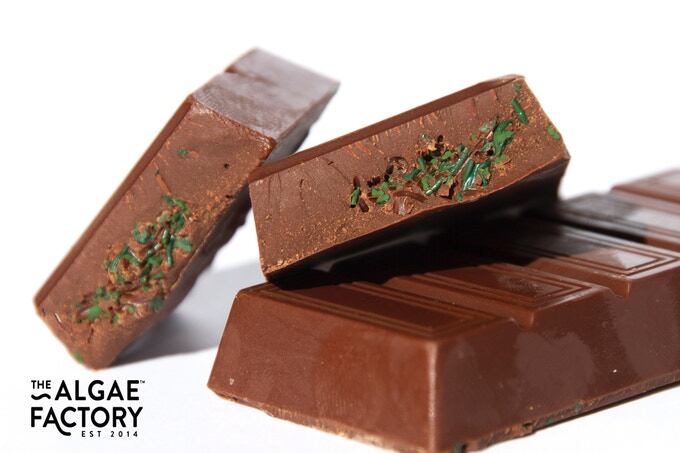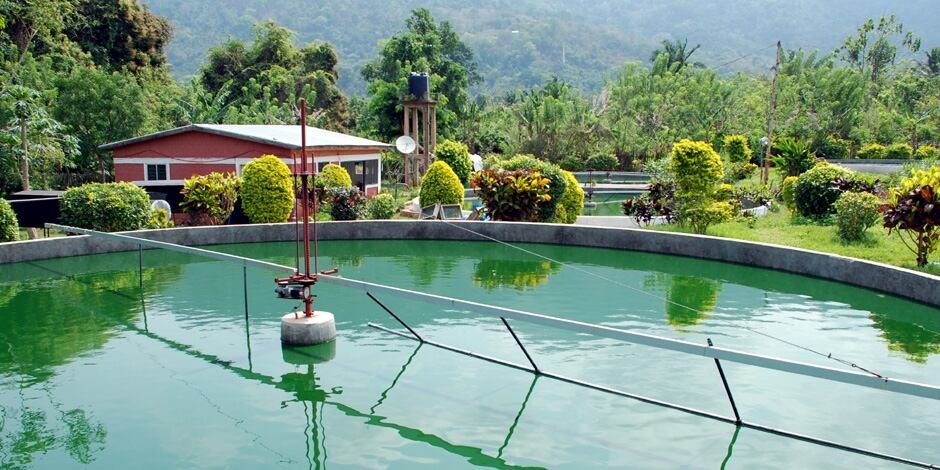“It is a very unusual combination,” co-founder of the start-up and Wageningen University graduate Stefania Abbona admits. “[But] the chocolate combines well with spirulina. We worked a lot on the recipe to find the best variety of cocoa able to soften the taste of spirulina.
"Also, seeing the green algae inside the chocolate after the first bite makes our products unique,” she adds.
The Amsterdam-based start-up first launched a dark chocolate and spirulina bar made with cocoa mass, raw cane sugar, cocoa butter, 3 g of spirulina and a soya lecithin emulsifier, before developing one with added hemp.
“The texture is crunchy and it seems [as if] there are nuts or puffed rice inside instead of algae. This crunchiness is really appreciated by our consumers, as they do not expect it."

Despite the unusual flavour combination, Abbona says people are keen to try the chocolate bars, which are a source of fibre and protein and retail for €2.50.
“Nowadays more and more consumers are vegan, vegetarian and flexitarian. People are more open to try different flavours and algae has become very popular, as it is an alternative to animal protein.”
The product’s unique selling point is its healthy indulgent formulation, but the start-up did launch a milk chocolate bar after seeing demand for a sweeter profile, particularly among younger consumers. It’s currently working on a bar sweetened by carob rather than sugar and a 100 g bar that will retail for €6.99.
Arthrospira platensis, or spirulina, is rich in vitamins, iron, calcium, magnesium and essential amino acids and has a high protein content (60 – 70%).
It has no cellulose walls, meaning the nutrients are easily absorbed by the body.
It also contains more than fifteen pigments, including chlorophyll and phycocyanin, used by the food industry to create natural food colours and colouring foods.
The name comes from its spiral shape.
Healthy inspiration
Inspiration came after Abbona, and The Algae Factory's other co-founder Pierluigi Santoro, grew tired of taking spirulina supplements.
“Taking all the pills really looked like a medicine so we decided to develop a product which contained the recommended daily intake of spirulina in order to have all the health benefits from it. This way, you just have to eat one bar per day!”
When a market study revealed a gap in the market for healthy indulgent algae chocolate, The Algae Factory was born.
A 2015 crowdfunding campaign on Kickstarter gave a much needed promotional and sales boost, although the start-up raised €6,086 it didn’t meet its target.
Chocolate with a conscience

The Algae Factory sources part of its spirulina from a producer in Togo, which was set up by Antenna France, a French NGO that works to combat child malnutrition. (The rest it sources from France and Italy).
Antenna France does this by setting up local spirulina farms in Africa and southeast Asia that produce and distribute the microalgae in a sustainable, self-sufficient and financially viable way.
It chose spirulina thanks to its impressive nutrient profile as well as the fact that it thrives in warm regions.
Abbona considers the Bite4Bite programme to be one of The Algae Factory's biggest successes. “The programme was born because we wanted to have an impact in the society we live in.”
Manufactured in Amsterdam, the bars are mainly sold on The Algae Factory’s own website but it also has some listings in cafes, cafeterias and co-working spaces around Amsterdam.
But the biggest challenge to come will be scaling up. “[…] Finding investors who believe in this project. It is crucial now to scale up,” says Abbona.
Microalgae is just one of the ingredients set to take centre stage as global demand for healthy, sustainable protein increases.
In March 2018, FoodNavigator's publisher William Reed, will be hosting a three-day event in Amsterdam on protein, bringing together scientists, entrepreneurs and CEOs.
Click here to book your spot.

